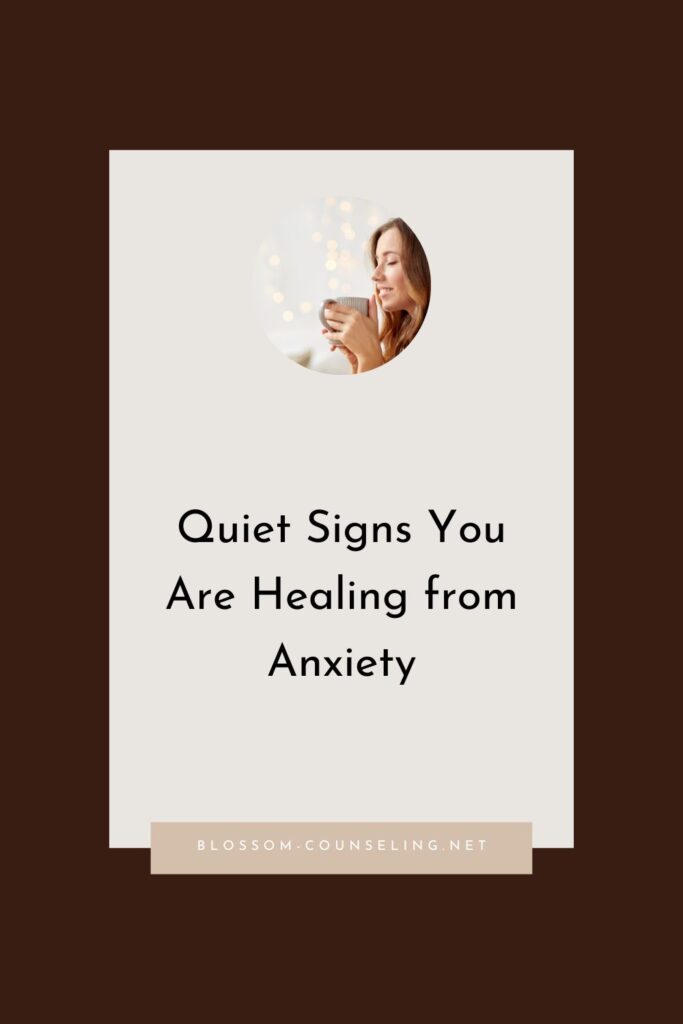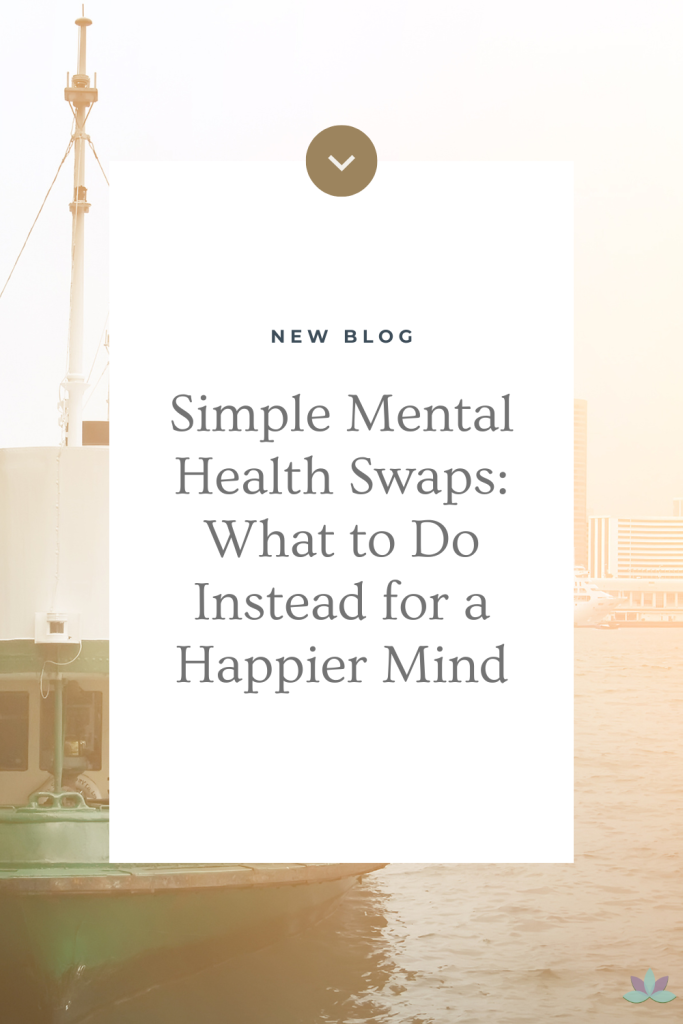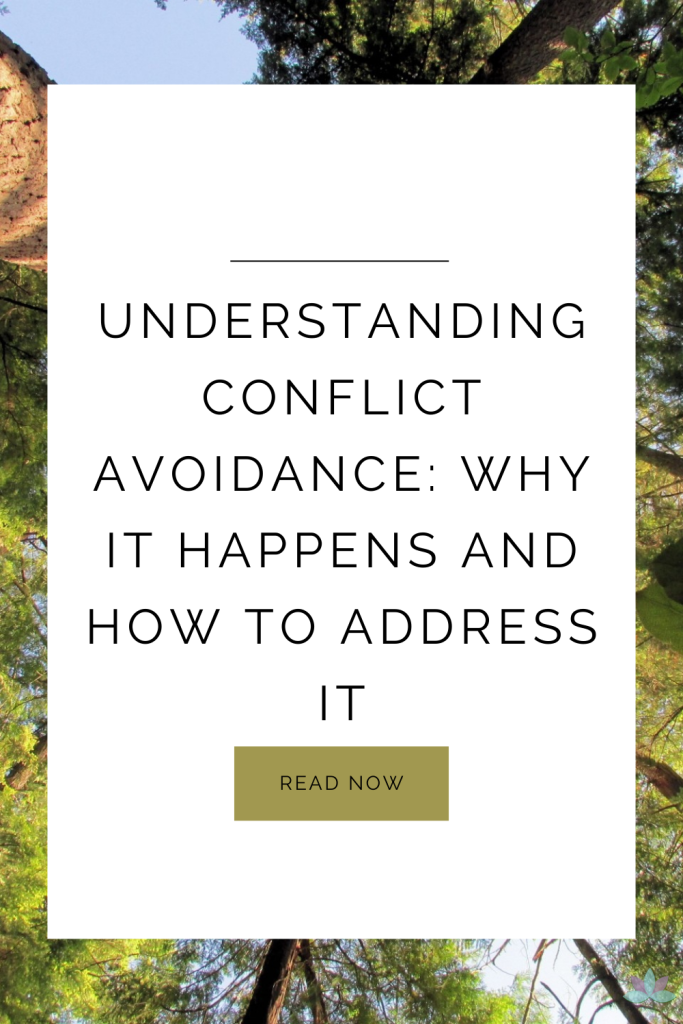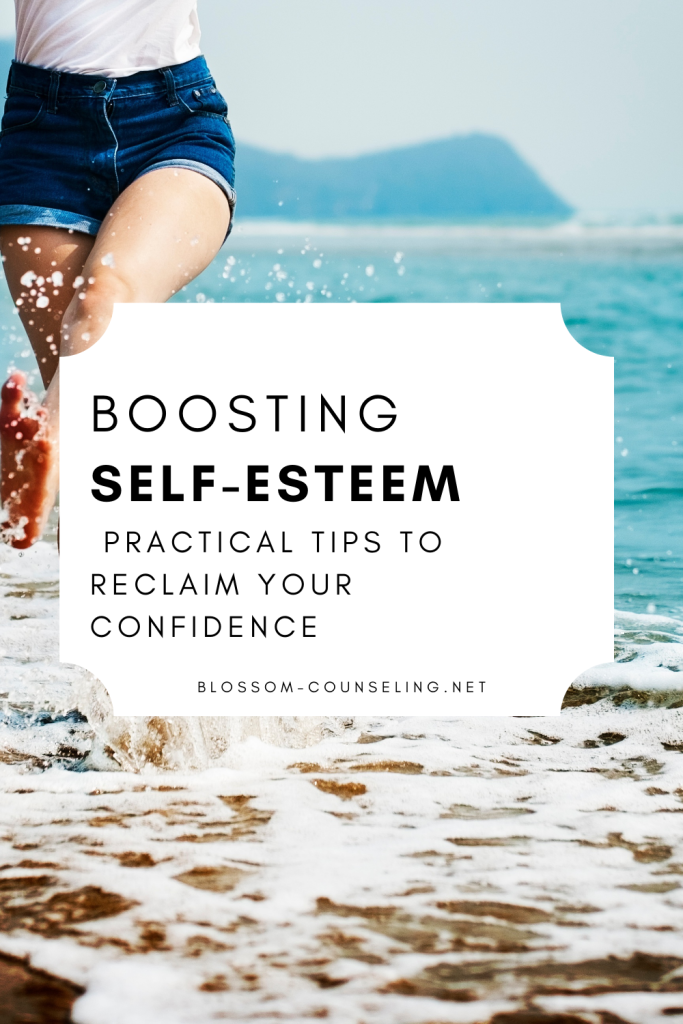
Healing from anxiety does not usually arrive with a big moment of clarity or a sudden sense of calm. More often, it is quiet and gradual. It might look like noticing your thoughts instead of being swept away by them. It might feel like breathing a little easier in situations that once sent your heart racing.
Anxiety can be loud and persistent, which makes healing feel subtle by comparison. Progress does not always mean feeling calm or confident all the time. It often shows up in small, everyday shifts that are easy to overlook. If you have been wondering whether therapy or self work is actually helping, here are some gentle signs that healing may already be happening.
You Pause Before Reacting
One of the earliest changes many people notice is a pause. Where anxiety once rushed in and took over, there is now a moment of space. You might still feel the anxiety rise, but instead of reacting immediately, you notice it. You take a breath. You give yourself a second. That pause is a sign that your nervous system is learning something new.
You Still Worry, but It Does Not Run the Show
Anxious thoughts do not disappear overnight. They often show up for a while, but they no longer control your entire day. You may notice yourself recognizing those thoughts instead of fully believing them. You might even think, this feels like anxiety, and then continue on with what you were doing. That ability to notice without spiraling is meaningful progress.
You Are Setting More Boundaries
Healing often brings a clearer sense of what you need. Maybe you are saying no more often, or choosing rest instead of pushing through. Maybe you are being more honest about how you feel instead of trying to keep the peace. Setting boundaries can feel uncomfortable, especially at first, but choosing yourself is a sign that fear no longer gets the final say.
Silence Feels Less Threatening
When anxiety is high, silence can feel overwhelming. It leaves too much room for thoughts to bounce around. As healing continues, you may find yourself less dependent on constant distraction. You can sit with your thoughts, even the uncomfortable ones, without needing to escape right away. That ability to be with yourself is a quiet but important shift.
You Are Kinder to Yourself About Anxiety
This is one of the most meaningful changes. Instead of criticizing yourself for feeling anxious or wondering why you are not over it yet, you meet yourself with more understanding. You begin to see anxiety as part of being human, not as a personal failure. Letting go of shame creates space for real healing.
Your Body Feels a Bit Safer
You might notice fewer headaches or stomach aches, or less tension in your jaw and shoulders. Your body still reacts sometimes, but you notice the tension sooner. You may respond with something supportive like stretching, resting, or grounding. Feeling safer in your body is an important part of anxiety healing.
You Are More Present in Everyday Moments
Anxiety often pulls you into what might happen next or what already went wrong. Healing allows you to spend more time in the present. You might catch yourself enjoying small things like your morning coffee, your pet, or a quiet moment without being pulled away by worry. Presence is a sign that your mind is finding balance.
You Can Name What You Are Feeling
Being able to say, I am feeling anxious, instead of feeling completely overwhelmed is a powerful step. Naming your emotions helps you understand them and respond with care. It shows that your emotional awareness is growing and that feelings no longer have to control you.
Healing Is Happening, Even If It Feels Subtle
Healing from anxiety does not mean you will never feel anxious again. It means your relationship with anxiety is changing. It no longer runs your life or defines who you are. Progress lives in the pauses, in the breath, in the boundaries, and in the ways you are learning to show up for yourself with more care and patience.
If you are noticing even one of these shifts, something important is happening. And that matters.
Hi, I’m Cristina. If you’re feeling overwhelmed, emotionally stuck, or just not like yourself lately, I want you to know you’re not alone—and you don’t have to figure it out on your own either.
I work with adults navigating anxiety, grief, depression, and big life transitions. My approach is gentle, collaborative, and rooted in the belief that real change happens when you feel supported and heard. We’ll take things one step at a time, exploring what’s getting in the way and building the tools you need to feel more confident and in control.
Therapy with me isn’t about quick fixes or pressure to perform. It’s about creating space to breathe, reflect, and grow into the version of yourself that feels most grounded and at peace. If you’re ready to start that process, I’d be honored to walk with you.




